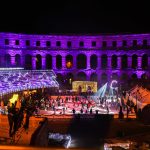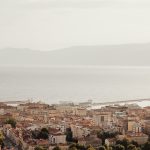The latest from the migrant crisis, as regional leaders gather in Brussels for a crucial summit.
European Commission president Jean-Claude Juncker has prepared a plan in 16 points which will be the basis for discussion on Sunday afternoon between the leaders of the 10 countries on the Balkan refugee route. The aim of the meeting in Brussels is to strengthen the cooperation between the countries on the migration route from Greece to Germany and to the put the flow of refugees under control, reports Vecernji List and Index.hr on October 25, 2015.
The summit will be attended by Croatian prime minister Zoran Milanović, Austrian chancellor Werner Faymann, German chancellor Angela Merkel, Bulgarian prime minister Boyko Borisov, Greek prime minister Alexis Tsipras, Hungarian prime minister Viktor Orban, Slovenian prime minister Miro Cerar, Serbian prime minister Aleksandar Vučić and presidents of Romania and Macedonia, Klaus Iohannis and Gjorge Ivanov.
The meeting will also include presidents of the European Council and Parliament, Donald Tusk and Martin Schulz, foreign minister of Luxembourg, the current chairman of the EU Council, Jean Asselborn, the UN High Commissioner for Refugees Antonio Guterres, and representatives of the European border agency Frontex and the European Office for asylum.
Croatian prime minister Zoran Milanović said on Saturday that the Junker’s plan is unrealistic. Milanović said that he will not accept any new obligations for Croatia and reiterated that Croatia will not become a hot spot. “There is an idea that once people enter a country, they should not be sent to other countries. That is impossible. Whoever wrote it, does not understand how things work, he woke up from a long dream. There will be no new obligations for Croatia in Brussels tomorrow”, he said.
The first point of the plan provides that the participants will within 24 hours appoint a contact person in their offices who will facilitate the exchange of information and coordination in the management of the refugee wave. The leaders would commit to increase the capacities of their countries for refugees by providing them temporary shelter, food, water and health care. They are also requested to organize registration of refugees, including taking their biometric data.
Juncker will ask the participants to commit not to encourage the transport of migrants to the borders of other countries without their consent. “The leaders are committed to refrain from facilitating the movement of refugees or migrants to borders of another country in the region without the consent of that country. The policy of directing refugees to neighbouring countries is unacceptable”, the draft document says.
President of the Commission proposes the deployment of Frontex in Slovenia on the border with Croatia and in Croatia to detect illegal crossings and to support the registration and fingerprinting process. According to the document, it is expected that Frontex will launch its operations on the border between Greece and Macedonia as well.
Slovenian president Borut Pahor said that the Sunday meeting in Brussels is a decisive day for Slovenia. He added that Slovenia, if the decisions were not favourable, would start implementing measures by itself and will not wait for Germany or Austria to do it. “Slovenia must not become a pocket where, if Austrian and German borders were to close, refugees would gather. Slovenia cannot do that”, Pahor said.
Ahead of the summit, Serbian, Bulgarian and Romanian prime minister met on Saturday in Sofia and took a common position that the three countries would not allow to become a buffer zone for refugees if Germany or another country closed its borders.
Eastern European countries owe to their partners to do more to stem the flow of migrants to the EU, said on Saturday Dutch prime minister Mark Rutte, while urging a more equitable distribution of asylum seekers in the member states. “Eastern Europe has done too little to stem the flood of refugees. We have invested a lot in that part of Europe, but now they are doing too little”, said Rutte after the meeting with the president of the European Council Donald Tusk.
Spokesman of the Vukovar-Srijem Police Department Domagoj Džigumović confirmed to the press that agreement between interior ministers of Croatia and Serbia is being implemented. “At the Berkasovo border crossing, there is much more Serbian police which is now leading the refugees in groups towards Croatia. That makes the job a lot easier for the Croatian police”, said Džigumović.
On the Serbian side of the border, there are significantly more police officers than in previous days. Serbian policemen have set up a fence, and refugees and migrants are released in groups which greatly facilitates the work of the Croatian policemen. “We do not have the crowds that we had on the other side of the border during the last few days. The ministers’ agreement is being implemented”, said Džigumović.
According to Croatian police, from midnight to 9 pm on Saturday, 9,569 migrants entered Croatia. In the Opatovac temporary reception centre there are currently 2,890 migrants. Since the beginning of the migration crisis, 240,926 migrants and refugees have entered Croatia.







